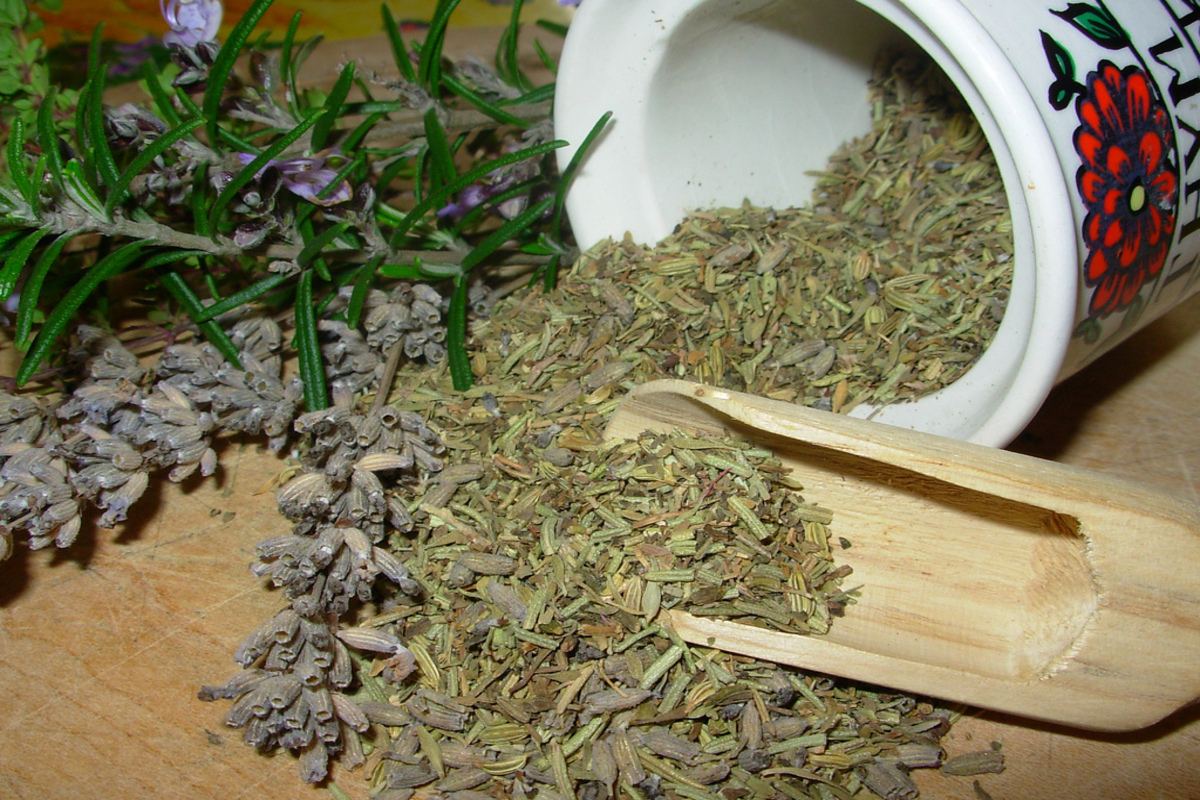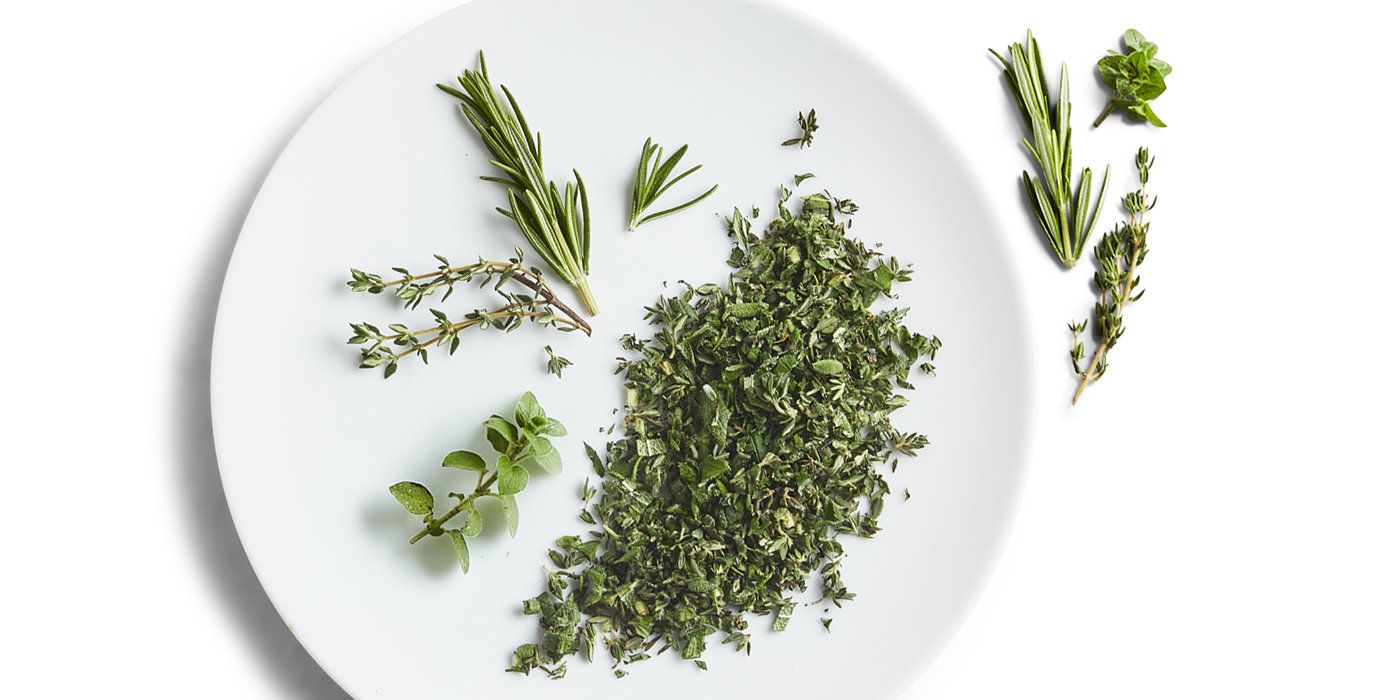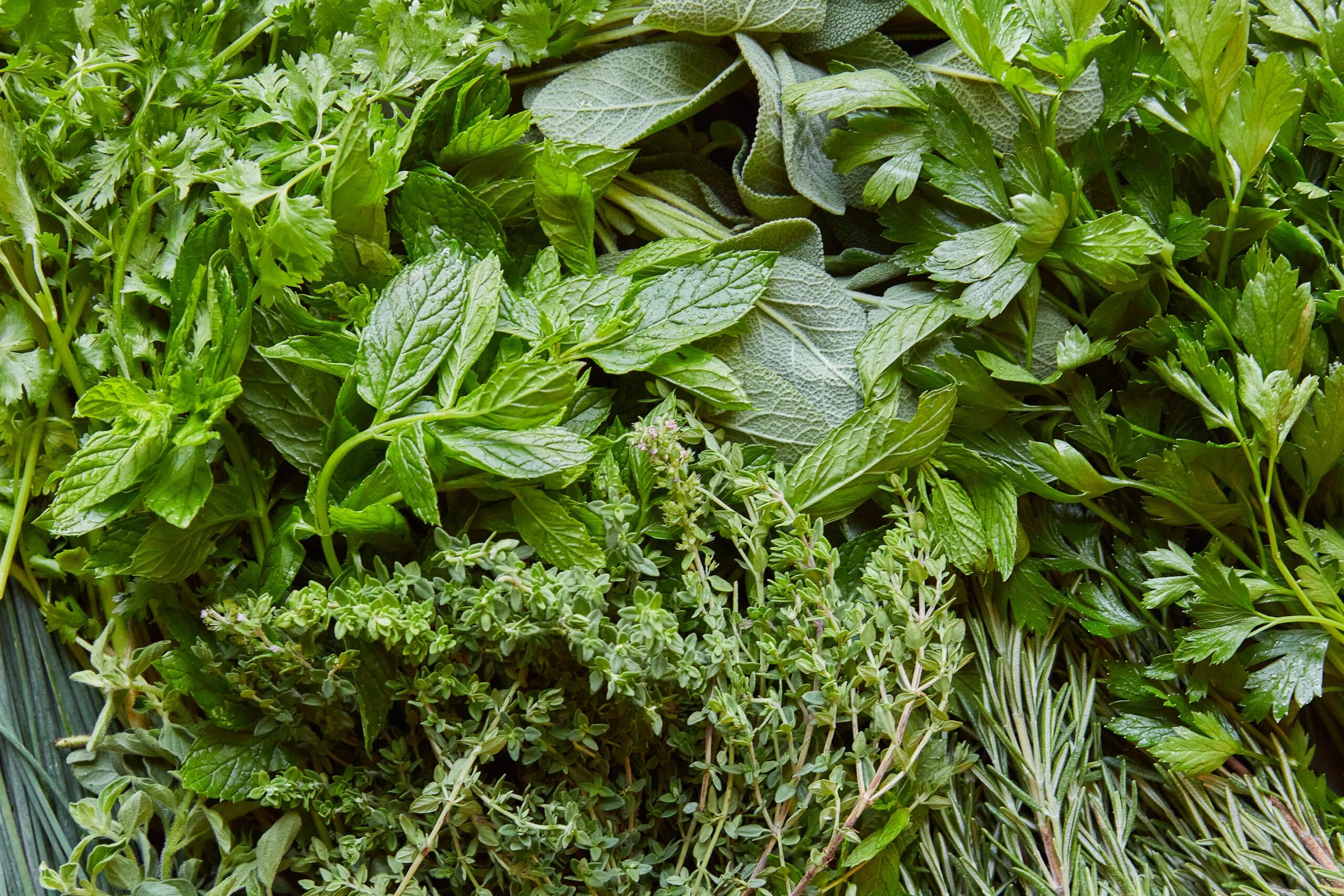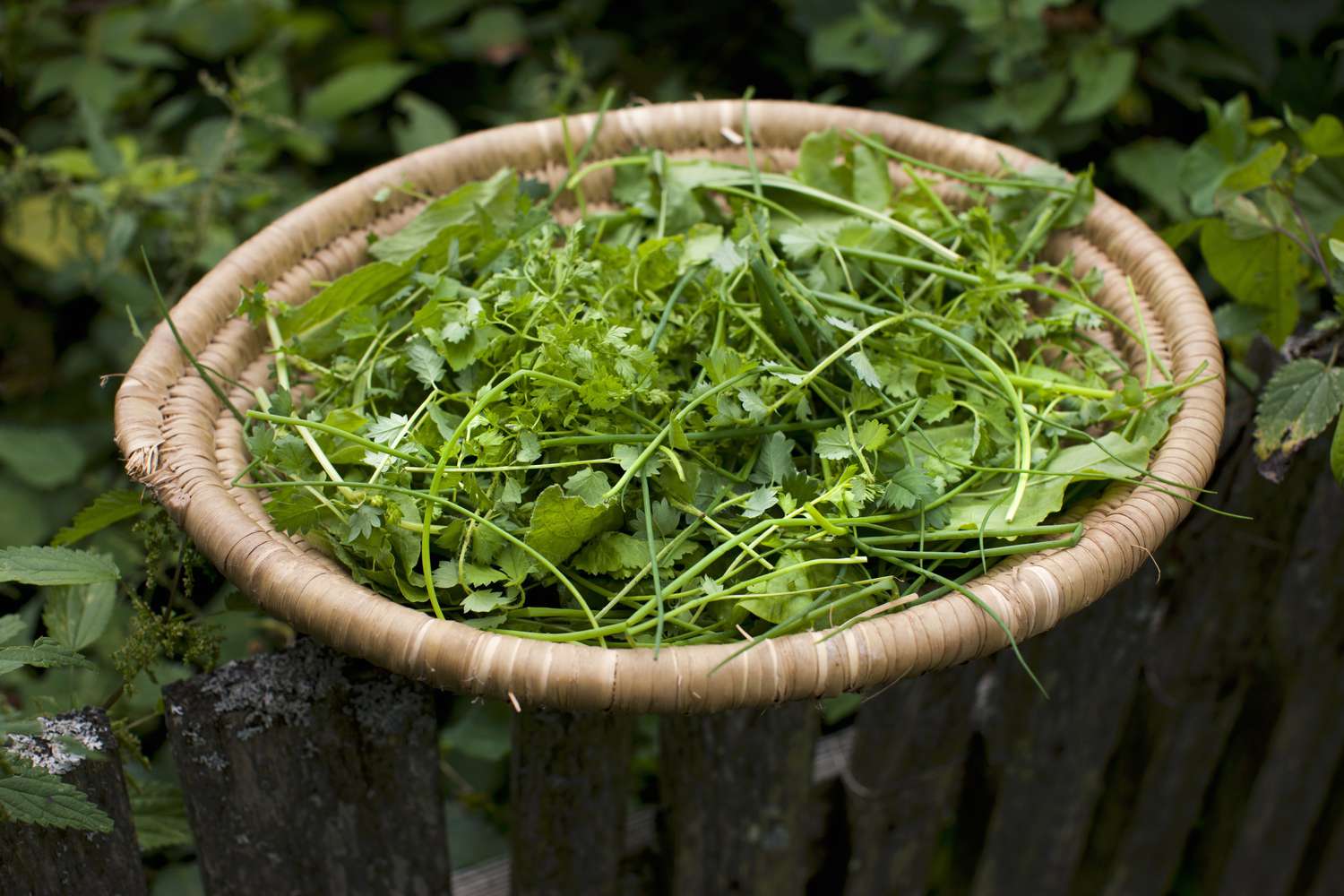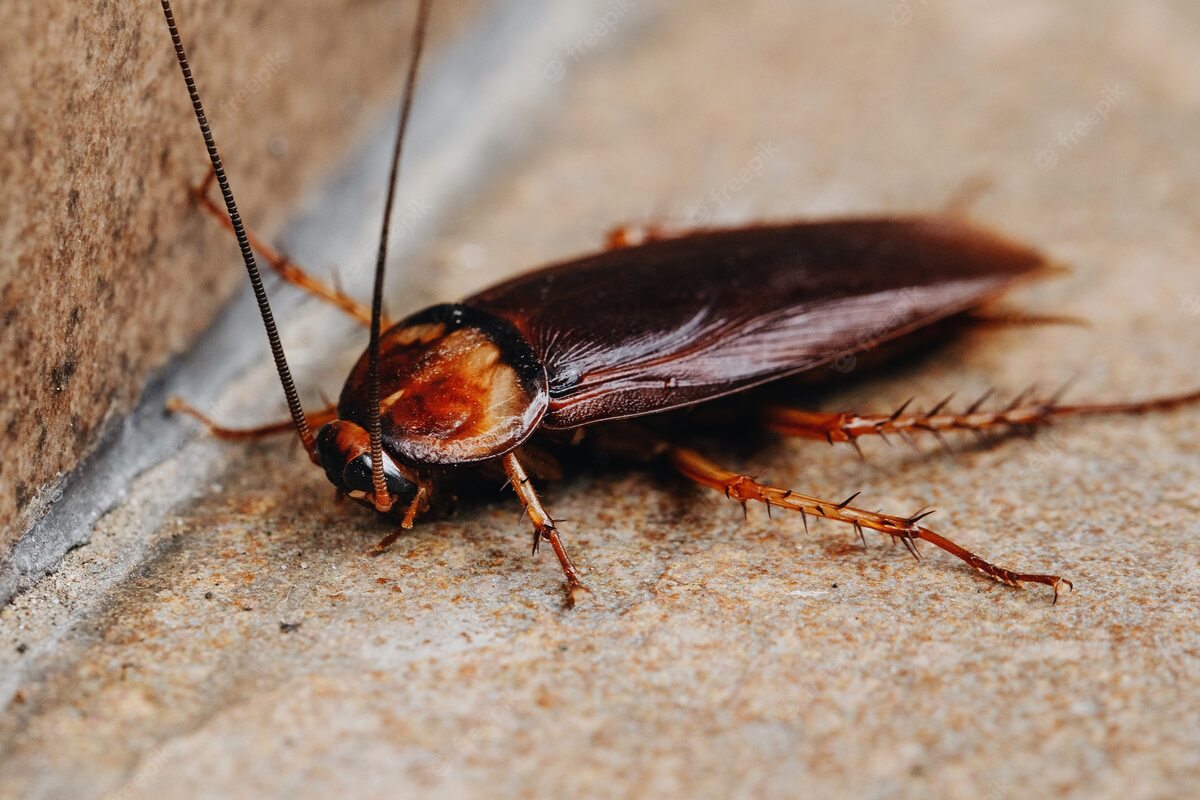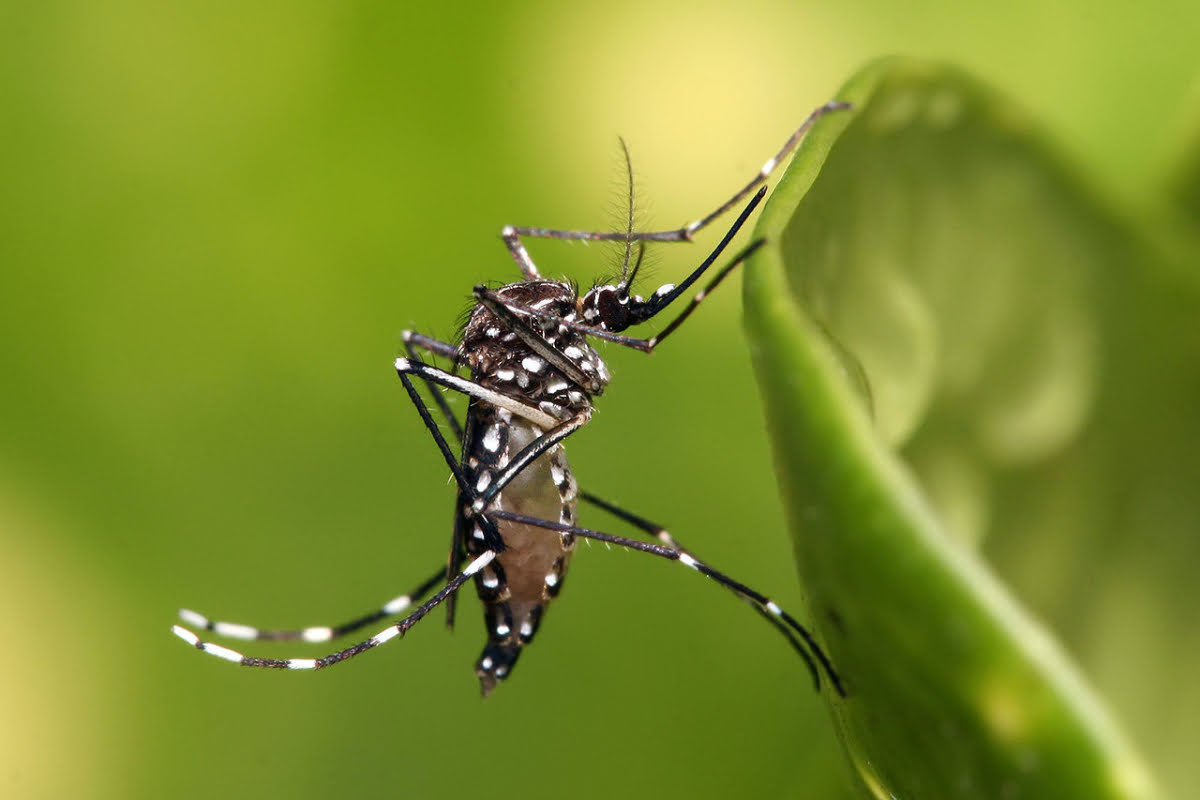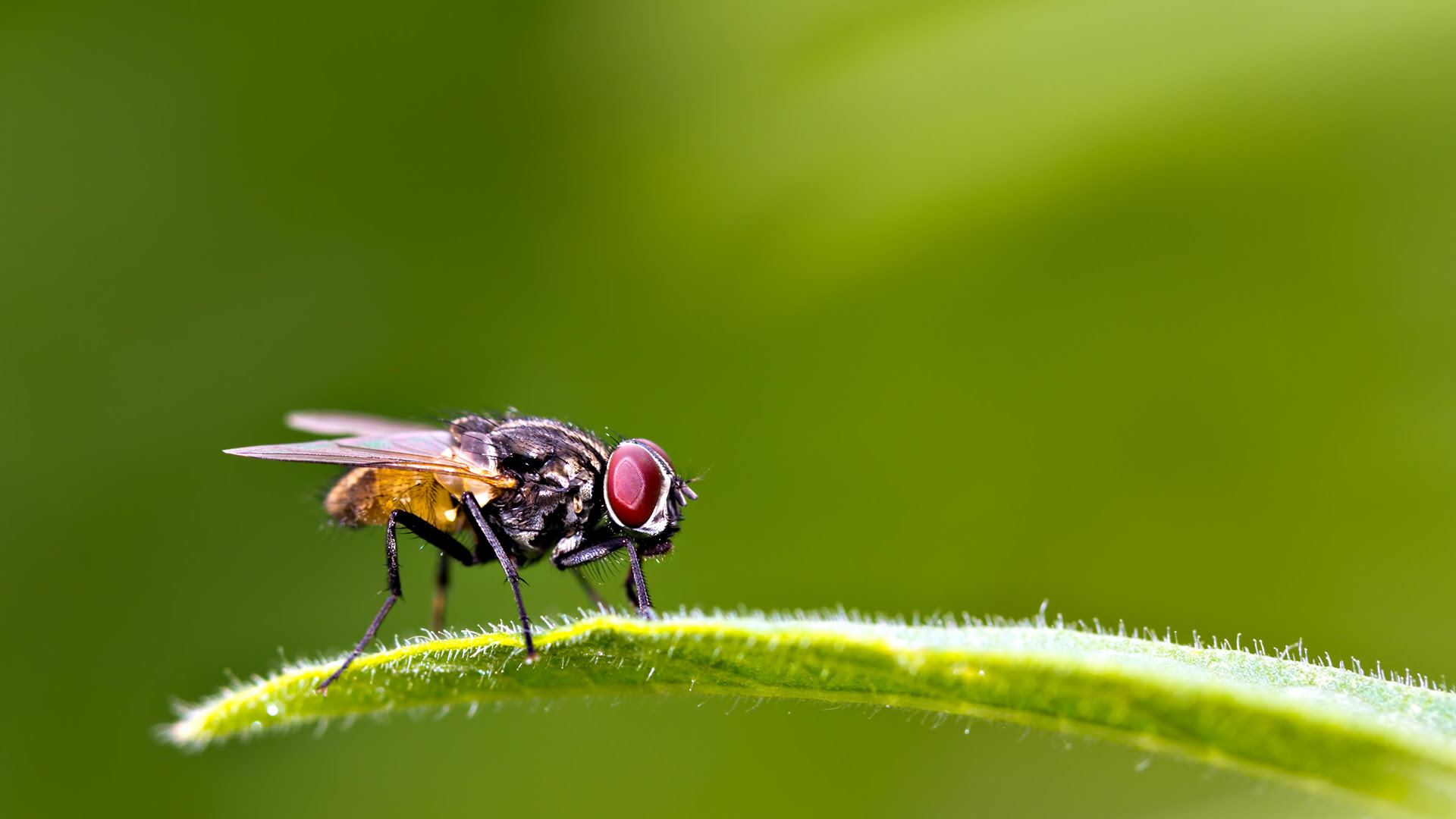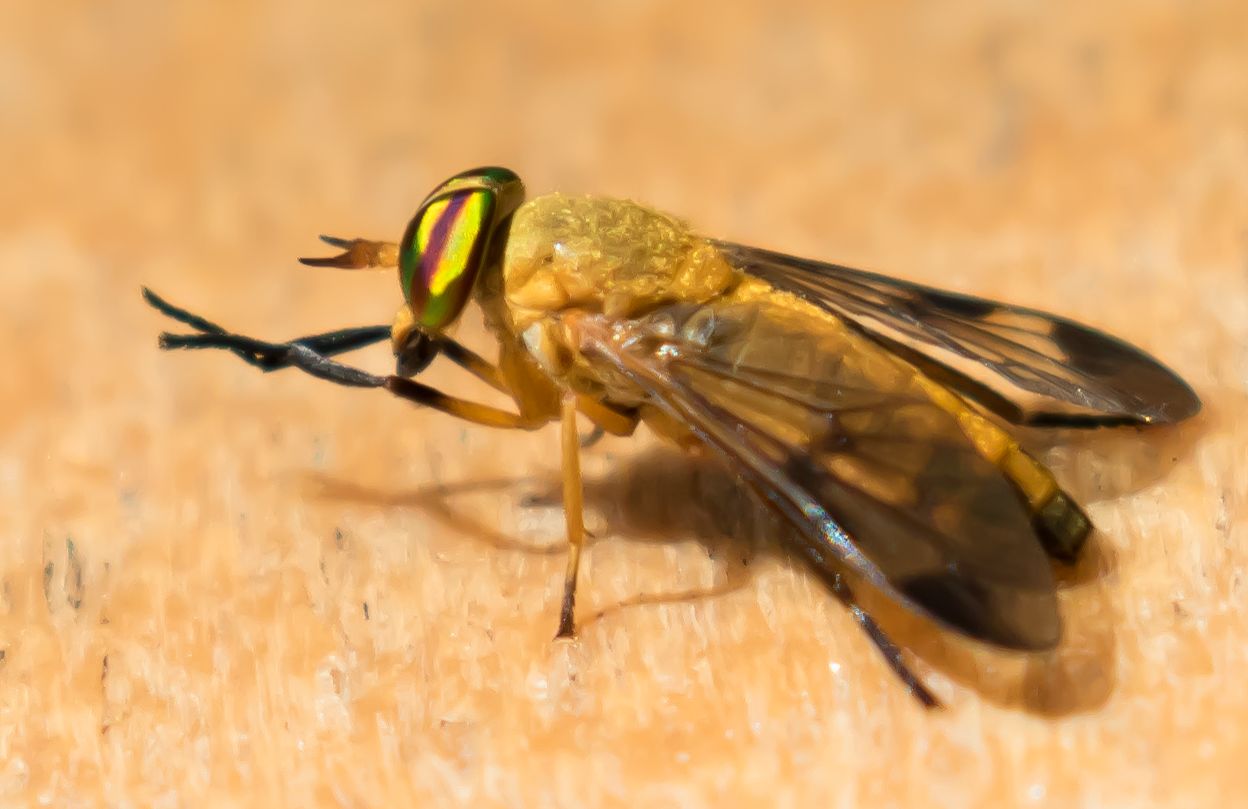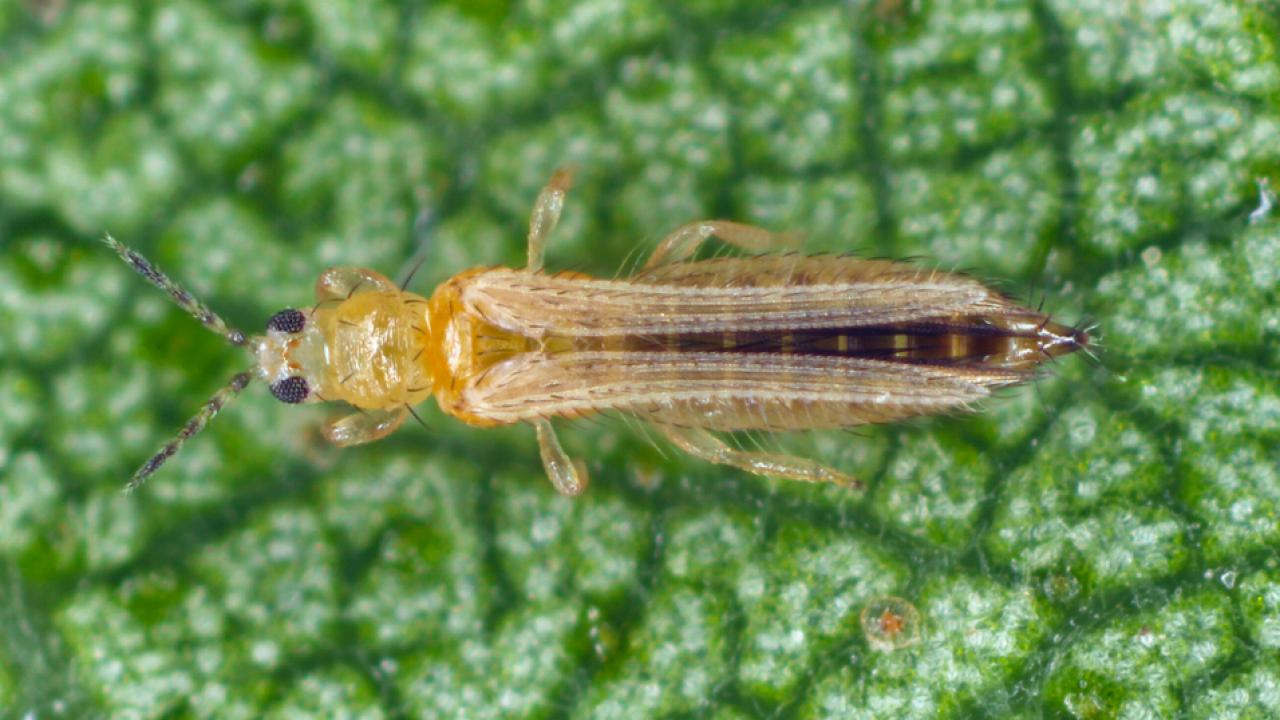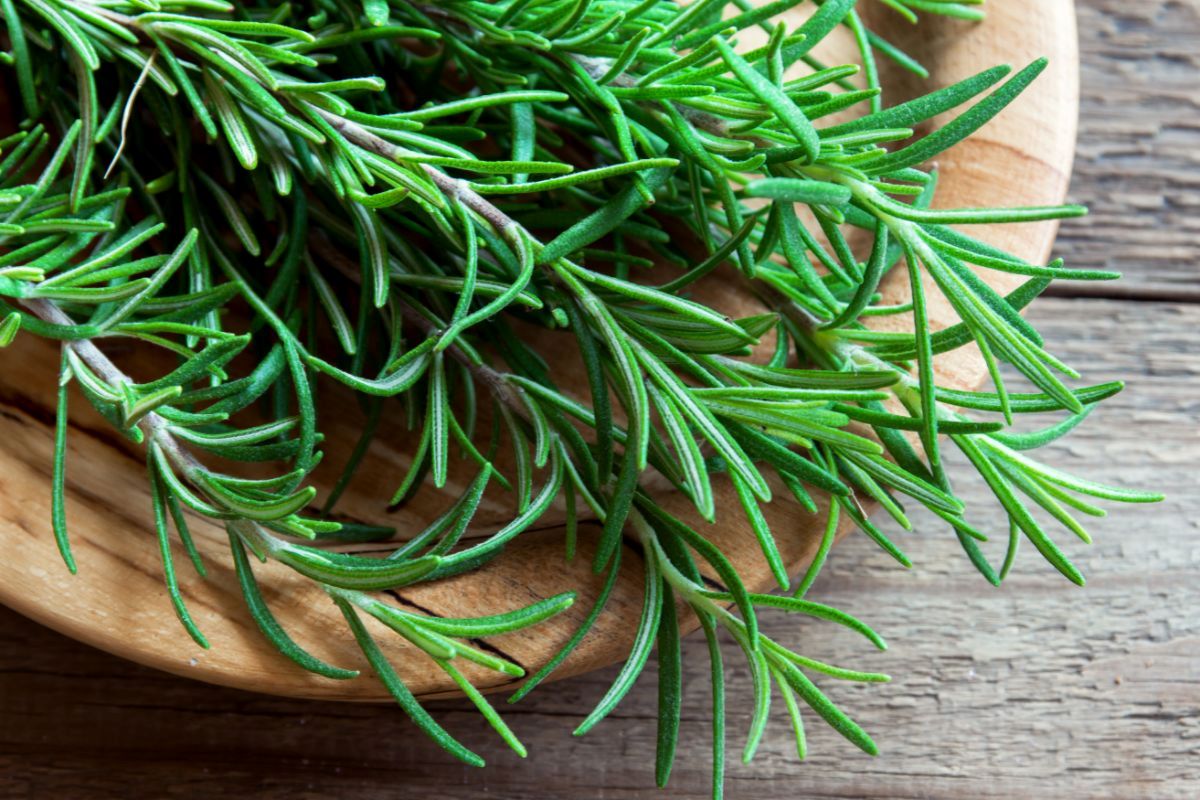Home>Gardening News and Trends>Gardening Trends>What Herbs Repel Roaches


Gardening Trends
What Herbs Repel Roaches
Published: October 3, 2023
Discover the latest gardening trends and learn which herbs repel roaches naturally. Create a beautiful and bug-free garden with these helpful tips.
(Many of the links in this article redirect to a specific reviewed product. Your purchase of these products through affiliate links helps to generate commission for Chicagolandgardening.com, at no extra cost. Learn more)
Table of Contents
Introduction
Having a clean and pest-free home is a top priority for many people, and one common household pest that causes a lot of distress is roaches. These resilient creatures can quickly infest a space, causing damage and spreading disease. While there are several methods and products available to eliminate roaches, using natural remedies can be a safer and more environmentally-friendly option.
One effective way to repel roaches is by using herbs. Not only do they add delightful scents to your home, but certain herbs also have the ability to repel these unwanted pests. By incorporating these herbs into your living space, you can create a natural barrier that discourages roaches from entering.
In this article, we will explore ten herbs that have been proven to repel roaches. From the refreshing aroma of mint to the calming scent of lavender, these herbs not only serve as natural deterrents but also add beauty and fragrance to your surroundings. Let’s dive into the world of herbs and discover the power they hold in keeping roaches at bay.
Disclaimer: While these herbs can help repel roaches, it’s important to note that they may not fully eliminate an existing infestation. For severe infestations, it is best to consult a professional pest control service.
Mint
Mint is not only a popular herb for culinary purposes but also a natural roach repellent. Its strong and refreshing scent is highly repulsive to roaches, making it an effective deterrent for keeping them away from your home.
There are a few ways you can use mint to repel roaches. One option is to plant mint around the perimeter of your house or in areas where roaches are commonly found, such as the kitchen or bathroom. The strong scent of mint will create a barrier that roaches will avoid crossing.
Another method is to make a mint spray. Simply boil fresh mint leaves in water, strain the liquid, and pour it into a spray bottle. Spray this solution along baseboards, countertops, and any other areas where roaches are likely to appear. Refresh the spray regularly to maintain its effectiveness.
If you prefer convenience, you can also use mint essential oil. Mix a few drops of mint oil with water in a spray bottle and apply it to the desired areas. This will create a minty repellent barrier that will keep roaches at bay.
It’s important to note that while mint is effective in repelling roaches, it may not eliminate an existing infestation completely. For severe infestations, it is advisable to seek professional pest control services to ensure thorough eradication.
Bay Leaves
Bay leaves not only add flavor to your culinary dishes but also serve as a natural roach repellent. These aromatic leaves contain compounds that are highly effective in repelling roaches and other pests.
To use bay leaves as a roach deterrent, simply place a few leaves in areas where roaches are commonly found, such as kitchen cabinets, pantry shelves, and bathroom corners. The strong scent emitted by the bay leaves will keep roaches away.
You can also create a sachet with bay leaves and place it in areas where roaches tend to gather. The scent will act as a natural barrier, preventing roaches from venturing into those spaces.
Keep in mind that bay leaves lose their potency over time, so it’s important to replace them periodically to maintain their effectiveness. Additionally, it is recommended to use whole bay leaves rather than crushed or powdered ones, as the whole leaves release the scent more slowly and last longer.
While bay leaves can help repel roaches, it’s important to note that they may not eliminate an existing infestation. For severe infestations, professional pest control services may be necessary.
Catnip
Catnip, also known as Nepeta cataria, is a herb that is well-known for its effect on cats. However, it is not just a feline favorite – it can also serve as a natural roach repellent.
One of the active compounds in catnip, called nepetalactone, is highly repellent to roaches. This compound affects the sensory receptors of roaches, causing them to avoid areas where catnip is present.
To use catnip as a roach repellent, you can sprinkle dried catnip leaves in areas where roaches are likely to appear, such as kitchen cabinets, pantry shelves, and entryways. The strong scent of catnip will deter roaches from venturing into those areas.
Another option is to create a catnip sachet by placing dried catnip leaves in a small cloth bag or a piece of cheesecloth and tying it tightly. Hang or place these sachets in areas where you want to repel roaches. Replace the sachets as needed to maintain their effectiveness.
It’s important to note that while catnip can repel roaches, it may not be sufficient to eliminate an existing infestation. For severe roach infestations, it’s advisable to seek professional pest control services for a comprehensive solution.
Lavender
Lavender is not only prized for its beautiful blooms and soothing scent, but it can also effectively repel roaches. The strong fragrance of lavender is highly unpleasant to roaches, making it an excellent natural deterrent.
There are several ways you can use lavender to repel roaches. One option is to place dried lavender sachets or dried lavender flowers in areas where roaches are commonly found, such as kitchen cabinets, closets, or under sinks. The scent of lavender will naturally discourage roaches from entering those spaces.
You can also create a lavender essential oil spray by mixing a few drops of lavender oil with water in a spray bottle. Shake well, then spray this solution in areas where roaches tend to appear. The lingering scent will repel roaches and keep them at bay.
Another method is to plant lavender around the perimeter of your home or in your garden. Not only will this add beauty to your outdoor space, but the aromatic scent will create a barrier that roaches are reluctant to cross.
While lavender can help repel roaches, it’s important to note that it may not fully eliminate an existing infestation. For severe infestations, it’s recommended to consult a professional pest control service for effective eradication.
Cloves
Cloves, with their strong and aromatic scent, can be an excellent natural repellent for roaches. The powerful compounds present in cloves, such as eugenol, are highly effective in deterring roaches and other pests.
To use cloves as a roach repellent, you can strategically place them in areas where roaches are likely to appear, such as kitchen cabinets, pantry shelves, and around entry points. Simply scatter whole cloves in these areas or tie them in a small cloth sachet and place them in roach-prone spots.
The strong scent of cloves will act as a natural barrier, repelling roaches and preventing them from infesting your home. Replacing the cloves periodically will help maintain their effectiveness.
In addition to using whole cloves, you can also create a clove spray by boiling cloves in water, allowing the liquid to cool, and pouring it into a spray bottle. Spraying this solution around areas where roaches are known to frequent can provide an extra layer of protection against these unwanted pests.
While cloves can help repel roaches, it’s important to note that they may not eliminate an existing roach infestation completely. For severe infestations, it’s advisable to seek professional pest control services to ensure thorough eradication.
Eucalyptus
Eucalyptus, with its refreshing scent and natural properties, is another herb that can effectively repel roaches. The strong aroma of eucalyptus acts as a potent deterrent, making it an excellent choice for keeping roaches at bay.
There are a few ways you can use eucalyptus to repel roaches. One option is to place eucalyptus leaves, either fresh or dried, in areas where roaches tend to gather, such as kitchen cabinets or pantry shelves. The strong fragrance emitted by the eucalyptus leaves will discourage roaches from approaching these areas.
Another method is to create a eucalyptus spray. Simply boil eucalyptus leaves in water, strain the liquid, and pour it into a spray bottle. Spray this solution in areas where roaches are commonly seen or suspected. The strong scent will act as a natural deterrent, repelling roaches and discouraging them from entering your living spaces.
Additionally, you can use eucalyptus essential oil to create a repellent spray. Mix a few drops of eucalyptus oil with water in a spray bottle and apply it to areas where roaches are active. The lingering scent will keep roaches away.
While eucalyptus can repel roaches to some extent, it may not eliminate an existing infestation entirely. For severe infestations, it’s advisable to seek professional pest control services for effective eradication.
Citrus Peels
Citrus peels, such as those from oranges, lemons, and grapefruits, can serve as a natural roach repellent. The strong scent and oils present in citrus peels act as a powerful deterrent, keeping roaches away from your home.
To use citrus peels as a roach repellent, simply save the peels after consuming citrus fruits. Place the peels in areas where roaches are commonly found, such as kitchen cabinets, countertops, or near entry points. Roaches find the scent of citrus overwhelming and will avoid these areas.
Another option is to dry the citrus peels and grind them into a fine powder. Sprinkle this powder along baseboards, inside cabinets, or any other areas where roaches may enter or gather. The strong citrus scent will act as a barrier, deterring roaches from entering your living spaces.
You can also create a citrus spray by boiling citrus peels in water, allowing the liquid to cool, and then transferring it to a spray bottle. Spray this solution in areas where roaches are prevalent. The citrus scent will linger, repelling roaches and discouraging them from infesting your home.
It’s important to note that while citrus peels can help repel roaches, they may not eliminate an existing roach infestation entirely. For severe infestations, it’s advisable to consult a professional pest control service for effective eradication.
Lemongrass
Lemongrass, with its fresh and citrusy scent, is not only a popular ingredient in cooking but also an effective natural roach repellent. The strong aroma of lemongrass contains compounds that repel roaches and deter them from entering your living spaces.
There are several ways you can use lemongrass to repel roaches. One option is to plant lemongrass in your garden or in pots near entry points, such as doors and windows. The scent of lemongrass will act as a natural deterrent, keeping roaches away from your home.
Another method is to use lemongrass essential oil. Mix a few drops of lemongrass oil with water in a spray bottle and spray it in areas where roaches are commonly found or suspected. The strong scent will repel roaches and discourage them from infesting your living spaces.
You can also create a lemongrass sachet by placing dried lemongrass leaves in a small cloth bag or a piece of cheesecloth and tying it tightly. Place these sachets in areas where roaches tend to gather, such as kitchen cabinets or pantry shelves. The scent of lemongrass will act as a natural barrier, preventing roaches from venturing into those areas.
While lemongrass can help repel roaches, it’s important to note that it may not eliminate an existing roach infestation entirely. For severe infestations, it’s advisable to seek professional pest control services for effective eradication.
Rosemary
Rosemary is a versatile herb that adds a delightful aroma to culinary dishes, but it also has the added benefit of being a natural roach repellent. The strong scent of rosemary acts as a powerful deterrent, keeping roaches at bay.
One way to use rosemary as a roach repellent is to place fresh rosemary sprigs in areas where roaches are commonly found, such as kitchen cabinets, pantry shelves, or near entry points. The strong fragrance emitted by the rosemary will naturally repel roaches and discourage them from entering those areas.
You can also create a rosemary spray by boiling fresh rosemary leaves in water, straining the liquid, and transferring it to a spray bottle. Spray this solution in areas where roaches tend to appear. The lingering scent of rosemary will act as a natural barrier, keeping roaches away.
Another option is to use rosemary essential oil. Mix a few drops of rosemary oil with water in a spray bottle and spray it in roach-prone areas. The aromatic scent of rosemary will deter roaches and prevent them from infesting your living spaces.
It’s important to note that while rosemary can help repel roaches, it may not eliminate an existing roach infestation. For severe infestations, it’s advisable to seek professional pest control services for effective eradication.
Neem Oil
Neem oil is a natural extract derived from the seeds of the neem tree, scientifically known as Azadirachta indica. It has been used for centuries in traditional medicine and is also highly effective in repelling roaches.
To use neem oil as a roach repellent, mix a few drops of neem oil with water in a spray bottle and shake well. Spray this solution in areas where roaches are commonly found, such as kitchen cabinets, countertops, and along baseboards. The pungent odor of neem oil acts as a deterrent, deterring roaches from entering your living spaces.
In addition to its repellent properties, neem oil also has insecticidal properties that can help control roach populations. It disrupts their growth, inhibits reproduction, and affects their feeding habits, ultimately reducing roach infestations over time.
Neem oil can also be mixed with other natural repellents, such as vinegar or essential oils, to enhance its effectiveness. However, it’s important to follow the instructions on the neem oil packaging and use it in the recommended ratios to avoid any potential adverse effects.
While neem oil can repel and help control roaches, it’s important to note that it may not eliminate an existing roach infestation completely. For severe infestations, it’s advisable to consult a professional pest control service for effective eradication.
Conclusion
When it comes to keeping roaches at bay, natural remedies can be a safer and more environmentally-friendly alternative to chemical pesticides. Herbs such as mint, bay leaves, catnip, lavender, cloves, eucalyptus, citrus peels, lemongrass, rosemary, and neem oil have all proven to be effective in repelling roaches.
These herbs work by emitting strong scents that are highly repellent to roaches. By incorporating these herbs into your living spaces, whether through planting, using essential oils, or utilizing dried leaves and peels, you can create a natural deterrent that roaches will want to avoid.
While these herbs can help repel roaches and prevent infestations in the first place, it’s important to note that they may not eliminate existing infestations entirely. For severe roach problems, it’s recommended to consult professional pest control services for thorough eradication.
Remember to regularly refresh or replace the herbs and natural remedies to maintain their effectiveness. Additionally, practicing good sanitation and keeping your home clean and clutter-free can also go a long way in preventing roach infestations.
By incorporating these natural roach repellents into your home, you can not only keep these unwanted pests away but also enjoy the beauty and aromas of these herbs. Create a harmonious environment that is both pleasing to your senses and inhospitable to roaches.
Choose natural remedies and harness the power of herbs to create a pest-free sanctuary in your home.
